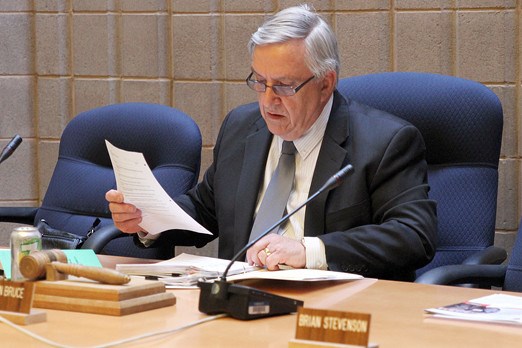Lakehead University’s board of governors temporarily suspended its own conflict-of-interest bylaw on Friday, unanimously voting to allow students representatives to speak and cast a vote on a proposed tuition hike.
It was a mostly symbolic gesture, as student governors Kyle Tyo and Erin Cameron were the sole dissenting voters. The motion passed in landslide fashion, meaning students can expect to pay up to eight per cent more for classes starting in 2012-13.
Outgoing Lakehead University Student Union president Michael Snoddon said the board’s decision to waive the controversial conflict bylaws was a clear sign they knew they were on shaky ground.
“It is a win. What the board pretty much said is, ‘Ummm, there’s a lot of media pressure, there’s a lot of public pressure. Maybe the decision we made in January was wrong.’ That helps our legal case. It shows there is indifference and that this board isn’t confident with the decisions they make,” said Snoddon, who wrapped up his term on Friday.
In January, the board of governors completed a comprehensive review of its structure, including revising conflict of interest bylaws, which meant the school’s three student governors would be excluded from any discussion dealing with tuition as it directly affected them.
Student governors are also not permitted to vote on tuition matters.
The board was told the school has little choice but to raise tuition to the maximum amount allowable by the province, or face deep cuts elsewhere. The university faces a $3.6-million shortfall and each department has been asked to reduce expenditures by three per cent.
Board member Chris Fernyc, who served on the finance committee, said if the school has little choice but to take the maximum allowable increase provided for under provincial legislation.
“Every dollar of tuition increase allowed that we do not take will have to come from somewhere,” he said, noting with scholarship and bursaries set aside, the increase will only wipe out $1 million of the projected deficit.
According to Fernyc, 80 per cent of the school’s budget goes toward salaries for faculty and staff, amounts which are generally fixed.
“There still remains a very significant funding gap, and by board policy, we have to have a balanced budget,” he said.
Snoddon said despite the temporary win, LUSU fully intends to continue on Monday with a promised judicial challenge, and seek to have the conflict-of-interest bylaw interpretation overturned. He said the board is unwilling to work or compromise with students.
Board chairman Colin Bruce said the conflict-of-interest laws are very clear, quite common and designed to protect the university – though Lakehead is the first university in Canada to deny student representatives the right to vote on tuition matters at the board of governors level.
Bruce said it is unfortunate the issue has snowballed, reaching the national press, but the board can’t have two sets of rules, one for students and one for other board members.
“We’re not doing anything that is unorthodox. Clearly, when you sit on a board where there’s a financial interest, you have no business voting on that financial interest when it’s personal. And this is very personal when you’re talking about tuition fees and what students will pay and whether or not they should vote on that question.”
